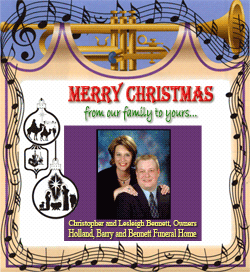|
 Seated in a corridor of the five-star hotel's lobby, former German
foreign minister Hans-Dietrich Genscher and his advisor Alexander
Rahr put their heads together with Khodorkovsky's lawyers and
Alexandra Hildebrandt, head of a Berlin Wall museum. Seated in a corridor of the five-star hotel's lobby, former German
foreign minister Hans-Dietrich Genscher and his advisor Alexander
Rahr put their heads together with Khodorkovsky's lawyers and
Alexandra Hildebrandt, head of a Berlin Wall museum.
They decided Genscher, who was trusted by the Germans, supported by
Chancellor Angela Merkel and well known to the Russians, in part due
to the role he played in negotiations on German reunification, would
launch a behind-the-scenes diplomatic offensive.
It was the start of a concerted German effort that reached from
Genscher to the top of the Chancellery, to apply pressure on Russian
President Vladimir Putin to free Khodorkovsky, who had been jailed
in 2003 on fraud and tax evasion charges but who was considered by
many in the West to be a political prisoner.
Ultimately, Khodorkovsky would owe the timing of his freedom to
Putin's determination to clean up Russia's image ahead of February's
Winter Olympics in the Black Sea resort of Sochi, meaning it made
more sense to free him than to keep him in jail until his scheduled
release next August.

But it would be Genscher who would negotiate with the Kremlin and
pass on a crucial message to Khodorkovsky in prison that he should
ask for clemency on humanitarian grounds due to his mother's ill
health. The German role proved advantageous to Putin as well: when
Khordokovsky was finally freed he was flown straight to Berlin on a
private jet arranged by Genscher.
A Kremlin source said Putin had paid a "very small price" for
pardoning Khodorkovsky: "He cut Khodorkovsky's sentence by less than
10 percent, and by forcing him to leave the country he has ensured
he is not a threat to him."
Just over 2-1/2 years after the initial meeting at the Adlon,
Khodorkovsky, once Russia's richest man, would be released and
reunited with some of his family at the same hotel.
The German effort began after Hildebrandt was asked to put up an
exhibit for Khodorkovsky in her museum, which houses objects that
East Germans used to escape to West Germany during the country's
division, such as a hot air balloon and a hollow surfboard, as well
as an exhibition on human rights.
Given Khodorkovsky's riches — estimated at $15 billion in the year
he was arrested — she did not agree until she had spent five days
reading the Russian court records to establish in her mind he was a
political prisoner and not jailed for his wealth. Once the exhibit
opened in 2010, Hildebrandt and her staff began to think about what
more they could do to help free him.
That was when Hildebrandt contacted Genscher, a close acquaintance
and Germany's longest-serving foreign minister.
"I called him up and said 'Mr Genscher we've got this problem here
and what can we do about it? Do you think we could sit down together
with his lawyers and talk about it?' He agreed right away,'" she
told Reuters.

Khodorkovsky's lawyers then asked Genscher to help them get their
client out of prison. Genscher did not respond to calls or emails
from Reuters but said on German public broadcaster ARD that he "of
course said yes because it's a humanitarian action which should
always be supported everywhere."
Rahr said that neither he nor Genscher received any payment for
their efforts on behalf of the jailed former oligarch.
Genscher and Rahr, who knew each other from their days at the German
Council on Foreign Relations, were both friendly with Khodorkovsky.
They had invited him to Berlin several times between 2002 and 2003,
held conferences with him and even celebrated Genscher's 75th
birthday together in 2002, Rahr said.
Genscher and Rahr also knew Putin. Rahr is a fluent Russian speaker
who has written a biography of Putin and is on the advisory board of
a club of experts that meets Putin every year.
"That's why it worked, because Khodorkovsky needed to put his faith
in Genscher and his mission — he needed to know him but he also
needed someone who had the Kremlin's trust and the Russian leaders
really trust Genscher due to his diplomacy in the negotiations on
the reunification of Germany," said Rahr.
CLANDESTINE GET-TOGETHER
When it became clear in 2011 that Putin planned to return to the
presidency after stepping down for a term as prime minister, Merkel
quietly launched a campaign to convince him to free Khodorkovsky as
one of his first acts back in the Kremlin.
The move, she argued, would signal to the world that Russia had
changed. But Putin rejected the entreaties, according to senior
officials in Berlin.
Khodorkovsky had been due for release in 2011, but in December 2010
was convicted of theft and money laundering at a second trial and
his sentence was extended.

On June 1, 2012, weeks after beginning his new term as president,
Putin travelled to Berlin and held talks with Merkel and new German
President Joachim Gauck.
But it was a clandestine meeting with Genscher at the military
section of Berlin's Tegel airport just before Putin's departure that
formally launched the 1-1/2-year dialogue with the president that
ultimately led to Khodorkovsky's pardon.
"Genscher had been in touch with us and we thought about how best to
approach this," said one senior German official familiar with the
Khodorkovsky discussions. "The meeting was arranged and Genscher
didn't let up after that."
"Merkel continued to raise Khodorkovsky herself whenever she met
with Putin. It was a very deliberate, tactical multi-track approach,
which also involved the foreign ministry and the German ambassador
in Moscow. The Russians trusted Genscher and they knew he had the
full backing of the chancellor."
Hildebrandt's museum carried out a public campaign, collecting
signatures from visitors to demand Khodorkovsky be freed.
Hildebrandt said Merkel told her she knew of her campaigning,
thought it right and had full faith in her efforts.
[to top of second column] |

Genscher and Putin also met a second time in secret in Moscow
earlier this year. In his negotiations, Genscher did not discuss
whether Khodorkovsky was guilty or innocent but simply emphasized
the humanitarian aspect, Rahr said.
Khodorkovsky had refused to sign a pardon letter with an admission
of guilt, so a compromise was needed whereby he could ask for a
pardon without admitting guilt. Genscher helped establish the
official reason for the release: as a humanitarian gesture because
of Khodorkovsky's mother's ill health.
"That wasn't easy, so it was a long diplomatic process until both
sides ultimately agreed on this purely humanitarian version and
Khodorkovsky came out because his mother was really very ill and he
wanted to see her alive again," Rahr said.
In his 25-word decree pardoning Khodorkovsky, Putin said his
decision was "guided by humanitarian principles".
The path to the pardon was strewn with problems and the ups and
downs in negotiations mirrored fluctuations in German-Russian
relations.
In 2011 uproar in Germany over a decision to award Putin a German
prize for freedom and democratic change soured the atmosphere and in
2012 outrage over both the jailing of members of Russian punk band
Pussy Riot and the introduction of a law in Russia tightening
controls on civil rights groups from abroad also took their toll on
negotiations, Rahr said.

ILL MOTHER
In November 2013, Khodorkovsky's mother was in a Berlin hospital
with cancer and her only son feared he might not see her again.
Genscher passed a message to Khordorkovsky suggesting the prisoner
should write a pardon letter to Putin emphasizing his mother's ill
health.
On November 12, the day Genscher's message was delivered,
Khodorkovsky wrote a short letter to Putin seeking his release and a
longer letter discussing his mother's health.
"I was told I should mention my mother's situation," Khodorkovsky
told The New Times magazine after his release.
On Thursday afternoon, Putin said he would soon pardon Khodorkovsky.
The decree was dated Friday, December 20 — the day he was freed from
Corrective Colony No. 7 near the Arctic Circle.
The Kremlin source told Reuters the "most intense" work on the deal
had started in October. He said the release had been "years" in
progress, but now was the "perfect time" and the Olympics were the
main reason for pardoning Khodorkovsky now.
He suggested that the health of Khodorkovsky's mother had provided a
convenient excuse for a decision that was made for other reasons:
"Yes, didn't that play in beautifully as well? But so what that she
is sick? She's been sick for some time. But the Olympics are
happening now."
Even the German negotiators were somewhat surprised by the quick
turn of events. After hearing the announcement on Russian
television, Rahr immediately phoned Genscher to tell him.
Genscher then got his friend Ulrich Bettermann, who runs a
manufacturer of electrical installation materials in western
Germany, to provide a private jet, Rahr said.

Khodorkovsky said on Sunday that the decision to leave Russia was
not his: "I had no choice. I was woken at 2 a.m. by the head of
prison camp and he told me I was going home. During the trip I
learned that the trip ended in Berlin."
At the airport in St. Petersburg he was driven to a Cessna on the
tarmac in a van and handed a passport, with a stamp recording his
exit from Russia, Khodorkovsky told The New Times.
The Kremlin source told Reuters that for Putin, Khodorkovsky would
have been much more of a headache if he served his sentence and was
released as scheduled. If he were to stay in Russia, he would
attract more attention for longer, which could empower him, the
source said, adding that this way, Putin had closed his way back to
Russia.
The Kremlin says Khodorkovsky is free to return to Russia, but he
says he fears he would be unable to leave because of a more than
$500 million claim linked to his first conviction.
The day Khodorkovsky flew to Berlin it emerged his mother was back
in Russia, unbeknown to Genscher and Rahr, who had not informed her
about the plans in advance.
When Khodorkovsky arrived at Berlin's Schoenefeld airport, Genscher
and Rahr were waiting for him on the tarmac. They took him by car to
the Adlon, where Khodorkovsky remembered standing in practically the
same hallway with Genscher and Rahr almost exactly ten years ago,
Rahr said.
"(Khodorkovsky) simply said: 'Wow, it would almost be as if time had
stood still for these last 10 years if everything hadn't been so
terrible.'"
(Additional reporting by Noah Barkin and Erik Kirschbaum in Berlin
and Steve Gutterman in Moscow; editing by Peter Graff)
[© 2013 Thomson Reuters. All rights
reserved.] Copyright 2013 Reuters. All rights reserved. This material may not be published,
broadcast, rewritten or redistributed.
 |